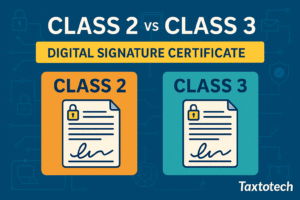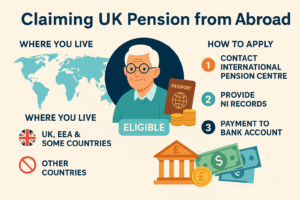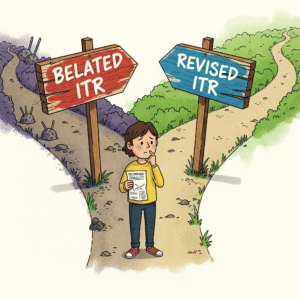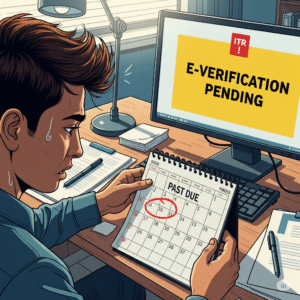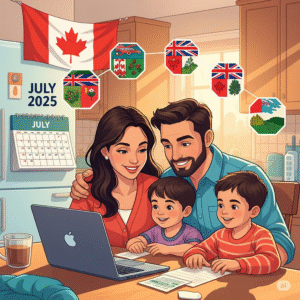Hello, Taxtotech Readers! Every parent shares a common, nagging fear: what is my child really seeing online? In an era where a smartphone is a gateway to the entire world, the dark corners of the internet feel closer than ever. For years, this has been a challenge left to parental controls and hope. But now, the landscape is undergoing a seismic shift. The United Kingdom is stepping onto the world stage, beginning the active enforcement of its ambitious and controversial online age check UK rules. This isn’t just another headline; it’s the start of a new, regulated chapter for the internet.
This monumental change is spearheaded by the Online Safety Act, a piece of legislation that has been debated, dissected, and now, finally, deployed. The UK’s communications regulator, Ofcom, has been handed the authority to hold technology giants accountable, with enforcement officially commencing. For businesses, users, and parents across the nation, this raises urgent questions about safety, privacy, and the very nature of our digital freedom. Here at Taxtotech, we understand that navigating complex tech regulations can be daunting. Join us as we break down exactly what these new rules mean for you.
What Are the New Online Age Check UK Rules?
At the heart of this new regulatory era is the Online Safety Act. Passed in late 2023, its primary goal is to make the UK the safest place in the world to be online, especially for children. The Act moves away from self-regulation and imposes a legal “duty of care” on online platforms. A central pillar of this duty is preventing minors from accessing content that is illegal or harmful to them, most notably pornography, but also content depicting extreme violence or promoting self-harm.
To achieve this, the law mandates that services likely to be accessed by children must implement robust age verification measures. The simple “Are you over 18?” tick-box, long seen as ineffective, is no longer sufficient. The law demands systems that can genuinely assess a user’s age. This applies not only to companies based in the UK but to any online service with UK-based users.
Here’s a breakdown of the key provisions now being enforced:
| Provision of the Online Safety Act | Description & Implication |
| Duty of Care for Children | Platforms must take proactive steps to protect children from harmful material. This includes assessing the risk of their service being accessed by minors and implementing safety measures accordingly. |
| Robust Age Verification | Services hosting pornography or other specific harmful content must have effective age verification systems to prevent children from accessing it. The definition of “robust” is key and pushes for advanced technological solutions. |
| Categorization of Services | The Act categorizes services (Category 1, 2A, 2B) based on size and risk. The largest platforms (like major social media) face the most stringent requirements, including content moderation and reporting duties. |
| Ofcom’s Enforcement Powers | Ofcom has the power to investigate platforms, demand information, and, crucially, issue massive fines for non-compliance. This gives the legislation its teeth. |
The New Sheriff in Town: Ofcom Begins Enforcement
For years, the digital world operated like the Wild West. With the enforcement of the Online Safety Act, the sheriff has officially arrived. Ofcom is now empowered to ensure every relevant platform complies with the new online age check UK mandate.
The regulator’s powers are significant and designed to command attention from boardrooms across the globe. For companies that fail to implement robust age verification or otherwise breach their duty of care, the penalties are severe:
- Massive Fines: Ofcom can issue fines of up to £18 million or 10% of a company’s qualifying global annual revenue, whichever is higher. For a tech giant, this could amount to billions of dollars.
- Business Disruption Orders: In serious cases, Ofcom can take action to have a non-compliant service or app blocked in the UK, effectively cutting it off from the market.
- Criminal Liability for Executives: The Act introduces powers to hold senior managers criminally liable if they fail to cooperate with Ofcom’s investigations, with the potential for prison sentences.
This transition from legislative text to active enforcement marks a critical moment for the global tech industry. Compliance is no longer optional.
How Will Age Verification Work? A Look at the Technology
The core question for users and platforms alike is: how will this actually work? The push for “robust” systems means we are moving beyond simple self-declaration. A range of technologies are being proposed and deployed, each with its own benefits and drawbacks.
.Navigating this technological and compliance minefield is a major challenge for businesses. As experts in global tech solutions, Taxtotechadvises companies to carefully evaluate these options based on their user base and risk profile. You can learn more about our compliance and tech integration services at https://taxtotech.com
Here are some of the platforms affected and the verification methods they may adopt:
| Platform / Content Type | Potential Age Verification Methods |
| Pornographic Websites | Third-party digital ID apps (e.g., Yoti, Post Office EasyID), facial age estimation, credit card checks (as part of a multi-factor system). |
| Major Social Media Platforms | AI-driven profile analysis, facial age estimation for account creation, requests for official ID for access to age-restricted features or content. |
| Video & Streaming Services | Requiring account holders to verify their age to unlock mature content categories, potentially using methods linked to payment information or digital IDs. |
| Online Gaming Platforms | Parental consent systems linked to verified adult accounts, age checks for purchasing age-rated games or accessing unmoderated voice chat. |
The Great Debate: Child Safety vs. Digital Privacy
The enforcement of the online age check UK rules has intensified a fierce debate about where to draw the line between protecting the vulnerable and preserving personal freedom.
The Argument for Unwavering Protection
Child safety advocates, such as the NSPCC, have championed the Online Safety Act as a landmark victory. They argue that the psychological harm, trauma, and potential for exploitation that children face from exposure to adult content is a far greater threat than any inconvenience or privacy concern. They point to studies linking early pornography exposure to distorted views on relationships and consent. For proponents, robust age verification is a common-sense public health measure, akin to age checks for alcohol or tobacco.
The Alarms over Privacy and Freedom
On the other side, privacy advocates like the Open Rights Group raise serious concerns. They argue that forcing users to prove their age online creates a digital passport system by stealth. This raises critical questions:
- Data Security: Where will this sensitive ID data be stored? Mandating age checks on millions of sites creates an enormous target for hackers, potentially leading to catastrophic data breaches.
- Freedom of Expression: Critics worry this will have a chilling effect on speech and access to information, as adults may be reluctant to share their ID just to access legal content.
- Ineffectiveness: Savvy teens may still find ways around these checks using VPNs or accessing sites hosted in countries without such laws, potentially pushing them to less secure corners of the internet.
This tension between two valid societal goals—protecting children and protecting privacy—is the central conflict of this new digital era.
Conclusion: A New Digital Contract for the UK
The enforcement of the UK’s online age check rules represents a bold and definitive step. It fundamentally rewrites the unwritten contract between online platforms and their users. The era of unchecked digital expansion is over, replaced by a new paradigm of accountability and care. For parents, this brings a potential sense of relief, but for all digital citizens, it brings forth legitimate questions about the future of privacy and anonymity online.
The success of this initiative will hinge on Ofcom’s ability to enforce the rules wisely and on the tech industry’s capacity to innovate solutions that are both effective and secure. As this new chapter unfolds, the world will be watching the UK’s grand experiment. At Taxtotech, we will continue to monitor these developments, helping businesses and readers alike understand the ever-changing digital landscape.
Frequently Asked Questions (FAQ)
1. Will I need to show my ID every time I visit a website?
Not necessarily. The most stringent “hard” age checks will be for sites with pornographic content. Other sites may use less intrusive AI-based methods. The goal of many digital ID systems is to allow you to verify your age once and then use a token or app to prove it without repeatedly sharing your documents.
2. What happens to my data after it’s used for an age check?
This is a key concern. Reputable age verification services are designed to be “data-minimal.” They confirm your age status with the website without sharing your actual date of birth or ID document. The Online Safety Act and UK GDPR place strict rules on how this sensitive data can be handled and stored.
3. Does the online age check UK law apply if I use a VPN?
While a VPN can mask your location, platforms that fall under the Act’s jurisdiction are still legally required to make a reasonable effort to prevent UK children from accessing harmful content. How this will be enforced on VPN users is a complex area that will likely be tested as enforcement ramps up.
4. What should parents do now?
While these rules add a layer of regulatory protection, they don’t replace the need for parental guidance. Parents should continue to have open conversations with their children about online safety, use parental controls available on devices and home networks, and stay informed about the technologies their children are using.
What are your thoughts on this new law? Is it a vital step for child safety or a dangerous slide into a surveillance society? Share your opinion in the comments below and share this article to keep the conversation going!









